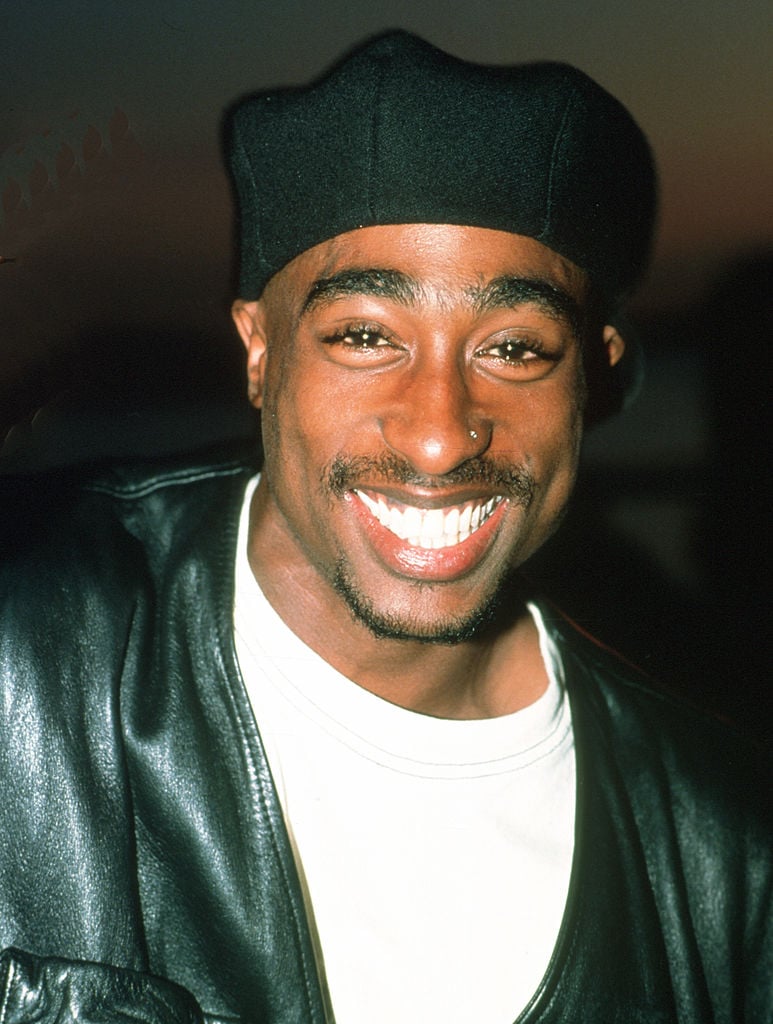Tupac Shakur, one of the most influential figures in music history, was born on June 16, 1971. His life and career have left an indelible mark on the world of hip-hop and beyond. Known for his raw talent, social consciousness, and unapologetic voice, Tupac remains a symbol of resilience and artistry even decades after his untimely death. This article will delve into his birth year, early life, and how it shaped his extraordinary journey.
Tupac's story is not just about music; it's about the struggles, triumphs, and challenges faced by a generation. His birth year, 1971, marks the beginning of a life that would redefine the cultural landscape. In this article, we'll explore how his early years influenced his art and legacy, providing readers with a comprehensive understanding of his journey.
As we journey through the life of Tupac Shakur, we'll uncover the factors that contributed to his rise as a global icon. From his upbringing in a politically charged environment to his transformation into a rap legend, Tupac's story is one of passion, activism, and unwavering dedication to his craft. Let's begin by understanding the man behind the music.
Read also:Hd Movies Hub Bollywood Your Ultimate Guide To Highdefinition Bollywood Cinema
Table of Contents
- Biography: Tupac Shakur
- Early Life and Family Background
- The Significance of Tupac's Birth Year
- Tupac's Musical Journey
- Tupac as an Activist
- The Lasting Legacy of Tupac Shakur
- Tupac's Influence on Modern Hip-Hop
- The Tragic End of a Legend
- Tributes and Memorials
- Conclusion: Remembering Tupac
Biography: Tupac Shakur
Early Years and Personal Data
Tupac Amaru Shakur, born on June 16, 1971, in East Harlem, New York, was destined for greatness. His parents, Afeni Shakur and Billy Garland, were both active members of the Black Panther Party, instilling in him a deep sense of social justice from a young age.
Below is a summary of Tupac's personal data:
| Full Name | Tupac Amaru Shakur |
|---|---|
| Birth Date | June 16, 1971 |
| Birth Place | East Harlem, New York |
| Parents | Afeni Shakur (mother) and Billy Garland (father) |
| Occupation | Rapper, Actor, Activist |
Early Life and Family Background
Tupac's early years were marked by the influence of his family's activism. Growing up in a household where political awareness was paramount, he developed a keen sense of the social issues affecting marginalized communities. His mother, Afeni Shakur, played a significant role in shaping his worldview.
Despite the challenges of growing up in a turbulent environment, Tupac's early education laid the foundation for his future success. He attended the Baltimore School for the Arts, where he honed his skills in acting and poetry, further enhancing his artistic talents.
The Significance of Tupac's Birth Year
Tupac's birth year, 1971, coincided with a period of significant social and political change. The Civil Rights Movement was gaining momentum, and the Black Panther Party was at the forefront of advocating for equality and justice. This era greatly influenced Tupac's perspective on life and art.
Some key events during Tupac's birth year include:
Read also:Naty Angelis The Rising Star Who Captivates Hearts Worldwide
- The release of the Jackson 5's hit single "I'll Be There."
- The continuation of the Vietnam War, sparking widespread protests.
- The rise of influential figures like Muhammad Ali and Angela Davis.
Tupac's Musical Journey
From Poetry to Rap
Tupac's transition from poetry to rap was seamless. His ability to articulate complex emotions and social issues through his lyrics set him apart from his contemporaries. Albums like "2Pacalypse Now" and "All Eyez on Me" showcased his versatility and depth as an artist.
His music often addressed themes such as poverty, racism, and police brutality, resonating with millions of listeners worldwide. Tupac's ability to connect with his audience on a personal level was unparalleled, making him a voice for the voiceless.
Tupac as an Activist
Beyond his music, Tupac was a passionate advocate for social change. He used his platform to highlight the injustices faced by African Americans and other marginalized groups. His activism extended beyond his lyrics, as he actively participated in community initiatives and public speaking engagements.
Some of his notable contributions to activism include:
- Supporting organizations that empower underserved communities.
- Engaging in discussions about systemic racism and inequality.
- Using his music as a tool for education and awareness.
The Lasting Legacy of Tupac Shakur
Tupac's legacy extends far beyond the music industry. He remains a symbol of resilience and determination, inspiring countless individuals to pursue their dreams despite adversity. His commitment to social justice continues to influence new generations of artists and activists.
Posthumously, Tupac has been celebrated through various tributes, including films, documentaries, and museum exhibits. His impact on popular culture is undeniable, with his name synonymous with authenticity and integrity.
Tupac's Influence on Modern Hip-Hop
Shaping the Industry
Tupac's influence on modern hip-hop is profound. He set a standard for authenticity and depth in lyricism, encouraging artists to address real-world issues in their music. His ability to balance commercial success with artistic integrity paved the way for future generations of rappers.
Today, many artists cite Tupac as a major influence, drawing inspiration from his commitment to social justice and his unique style. His legacy continues to inspire new artists to push boundaries and challenge the status quo.
The Tragic End of a Legend
Tupac's life was tragically cut short on September 13, 1996, when he was fatally shot in a drive-by shooting in Las Vegas. His untimely death shocked the world, leaving behind a void that could never be filled. Despite his passing, Tupac's music and message continue to inspire millions around the globe.
His death remains a topic of speculation and debate, with numerous theories surrounding the circumstances of his shooting. Regardless of the unanswered questions, Tupac's legacy endures as a testament to his impact on the world.
Tributes and Memorials
Tupac's memory has been honored through various tributes and memorials. The Tupac Amaru Shakur Center for the Arts in Atlanta serves as a testament to his commitment to education and the arts. Additionally, numerous documentaries and films have been produced to celebrate his life and work.
Artists and fans alike continue to pay homage to Tupac through concerts, murals, and other forms of artistic expression. His influence is evident in the continued relevance of his music and the enduring nature of his message.
Conclusion: Remembering Tupac
Tupac Shakur's birth year, 1971, marked the beginning of a life that would leave an indelible mark on the world. From his early years in Harlem to his rise as a global icon, Tupac's journey is one of inspiration and resilience. His music and activism continue to resonate with audiences worldwide, reminding us of the power of art to effect change.
As we reflect on his life and legacy, let us honor his memory by continuing to advocate for justice and equality. Share this article with others and explore more about Tupac's life and work. Together, we can ensure that his voice continues to inspire future generations.
References:
- Shakur, Afeni. "Tupac Shakur: The Life and Times." Random House, 2005.
- Chang, Jeff. "Can't Stop Won't Stop: A History of the Hip-Hop Generation." Picador, 2005.
- Various Artists. "Still I Rise: The Tupac Shakur Collection." Interscope Records, 2001.


